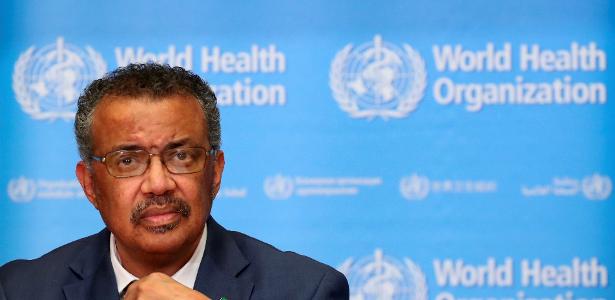
[ad_1]
WHO is holding a high-level meeting with presidents and world leaders on Friday to deliver a political message of commitment that new treatments to deal with the pandemic will reach everyone. Brazil, which historically led the issue of access to medicines, will not participate and part of the government did not even know about the mega-event, a sign of the irrelevance that national diplomacy has won.
The meeting coordinated by the WHO summit will be chaired by Emmanuel Macron, President of France, with the participation of Bill Gates and the President of the European Commission, Ursula von der Leyen. The column found that presidents and heads of government from other countries will also be present, including Costa Rica and two other Latin American governments.
The event will mark the commitment that any treatment or vaccine that is created will be the objective of an international effort to make it available to all countries. A $ 8 billion fund is expected to be announced to target drug distribution and production.
The issue of access to medicines has traditionally been a banner of different Brazilian governments. At the beginning of the century, allied with the French government, Brazil established a mechanism to allow access to medicines for the poorest. This time, Paris takes the flag without the presence of the Brazilian government.
The initiative is also produced to fill the political vacuum left by the G-20, unable to reach an agreement on how to deal with the pandemic. On Sunday, a meeting of the group’s health ministers ended without an agreement after the United States government vetoed the final statement citing recognition of the WHO’s role.
WHO attacks Bolsonaro
This Friday, the WHO also responded to criticism by President Jair Bolsonaro against Tedros Adhanom Ghebreyesus, director general of the World Health Organization. The Brazilian’s comments, according to diplomats in Geneva, deepened the unease between the agency and the government. Brazilian
At a concert Thursday night, Bolsonaro tried to justify the reason he ignored the WHO. “People talk a lot about following the WHO, right? Is the WHO director a doctor? He is not a doctor. It is the same if the president of Caixa was not in the area. It is not appropriate. So, the president of WHO is not a doctor. “
Tedros has a degree in biology. But he has a master’s degree in Infectious Disease Immunology from the University of London, a PhD in Philosophy (Health) from the University of Nottingham, and is considered a specialist in operations and leadership in emergency response to epidemics.
Tedros also served as Ethiopia’s Minister of Health between 2005 and 2012.
Questioned by the column, a WHO spokeswoman came out in defense of Tedros. “I invite you to consult the biography of Dr. Tedros,” said the representative, who notes the Ethiopian’s “strong experience” in relation to public health.
In addition, the WHO notes that the agency has “some of the best experts” and insists that “the strength of the WHO is to be able” to have thousands of experts to help guide our work. “
The decision to declare a global emergency, as it did on January 30, was made on the recommendation of a group of scientists, some of the leading experts in health emergencies. A week before the declaration, these scientists met and did not come to a conclusion. Tedros therefore did not declare an emergency.
In addition to the group, dozens of others were trained internally at WHO to respond to the crisis by formulating strategies. In one of them, the president of Fiocruz participates.
But the Brazilian attacks do not occur in isolation. This week, Foreign Minister Ernesto Araújo published a text in which he warned about the risk of designing a communist plan to use the pandemic to strengthen international entities and, through them, influence the world. Among the entities at the end of this supposed strategy is the WHO, according to the minister.
It also created discomfort in Bolsonaro’s manipulation of Tedros’ statements, to justify his own policy, which went in the opposite direction to the WHO’s suggestions.
This week, WHO also drew attention to the Brazilian government’s refusal to join cosponsors of a UN resolution that, among other things, recognized the central role of the health agency in responding to the pandemic. The gesture was taken after pressure from the US government for its allies, Brazil, Hungary and Venezuela, to distance themselves from the initiative presented and supported by 179 of the 193 UN countries.
In a jab at the government, WHO chief operating officer Michael Ryan used Luiz Henrique Mandetta’s resignation to thank the then minister for his services and insisted on the need for governments to act on “evidence.”
Brazil also avoided questioning the suspension of money by Americans for the WHO, which promises to reach dozens of health programs around the world.
The Brazilian attacks, ironically, occurred at the same time that the WHO office for the Americas, the Pan American Health Organization, closed an agreement to send 10 million tests for the diagnosis of COVID-19, purchased by the Ministry of Health. from Brazil through the Agency’s Strategic Fund.